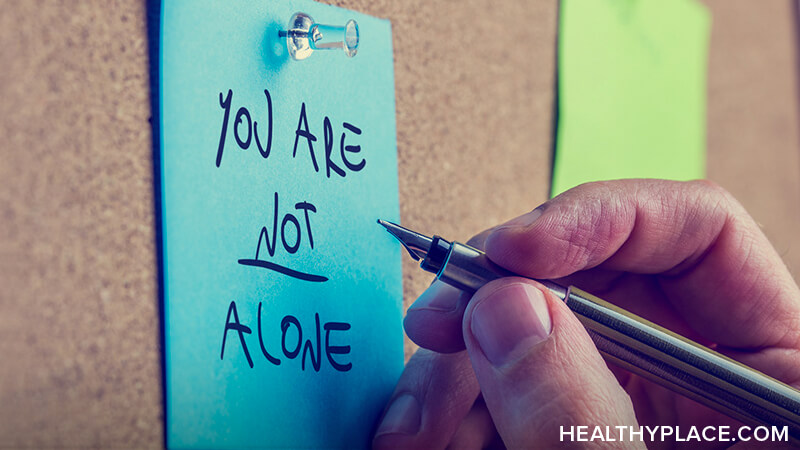Shame in Binge Eating Disorder Recovery Is the Hidden Enemy

"Why are you writing about binge eating disorder recovery?" my boyfriend asked the other day. "Did you have a problem with it when you were little?" A blanket of shame due to binge eating disorder wrapped itself around my body, weighing me down like lead. I felt my face contort into a half-cringe, half-grimace. A familiar knot formed in my stomach — he didn't know, and now I was going to have to tell him.
We were already together when binge eating became a problem for me, but we weren't living together at the time, so it was easy to hide. By the time I moved in with him two years ago, I was already in recovery. Even so, I have occasionally relapsed during that time, hiding the evidence in my desk until I could throw away the wrappers without him noticing.
My Binge Eating Shame Came Out
I confessed it all to him, and he listened without flinching. I expected him to be shocked, but his face showed no signs of surprise. He listened, with a look of loving concern, and then told me about his experience with a family member who had suffered from similar problems. He told me not to worry, that he understood and that everything was okay. Tears swelled in my eyes as my shame due to binge eating evaporated under the spotlight of his kindness.
Shame is perhaps the most prevalent and most painful of all the emotions that accompany binge eating disorder. It keeps us isolated from those who love and want to help us and perpetuates the bingeing cycle. Researcher Brené Brown defines shame as:
"the intensely painful feeling or experience of believing that we are flawed and therefore unworthy of love and belonging – something we've experienced, done, or failed to do makes us unworthy of connection."1
Overcoming Binge Eating Shame
For binge eaters, bingeing makes us feel unworthy of love. Shame makes us withdraw from the world to hide our flaws and inherent unworthiness. However, this is not a healthy or constructive way to cope with binge eating and the shame that accompanies it. In fact, according to Brown, the most powerful antidote to shame is empathy.2 When another person sees, hears, and accepts you, the barriers of shame break down, and you are free to experience love and connection once again.
That was what happened during my recent conversation with my boyfriend. I realized I could have saved myself years of shame if I had told him sooner. I brought a hidden part of myself into the light and his love and acceptance dissolved the shame that surrounded it, allowing us to connect on a new and deeper level.
Shame is the hidden enemy of binge eating recovery, so please don't suffer alone. Talk to a trusted friend or loved one about what you're going through. Their reaction will probably surprise you — and help you with your recovery.
How do you cope with the shame of binge eating disorder? Have you ever opened up to a loved one about it, and, if so, what happened? Share your story with me in the comments.
Sources
- Brown, B., "Shame v Guilt", Brené Brown, January 14, 2013.
- Brown, B., "What's the Most Powerful Antidote to Shame?", Happify, Accessed June 15, 2020.
APA Reference
Peel-Yates, V.
(2020, June 16). Shame in Binge Eating Disorder Recovery Is the Hidden Enemy, HealthyPlace. Retrieved
on 2025, December 5 from https://www.healthyplace.com/blogs/bingeeatingrecovery/2020/6/shame-in-binge-eating-disorder-recovery-is-the-hidden-enemy